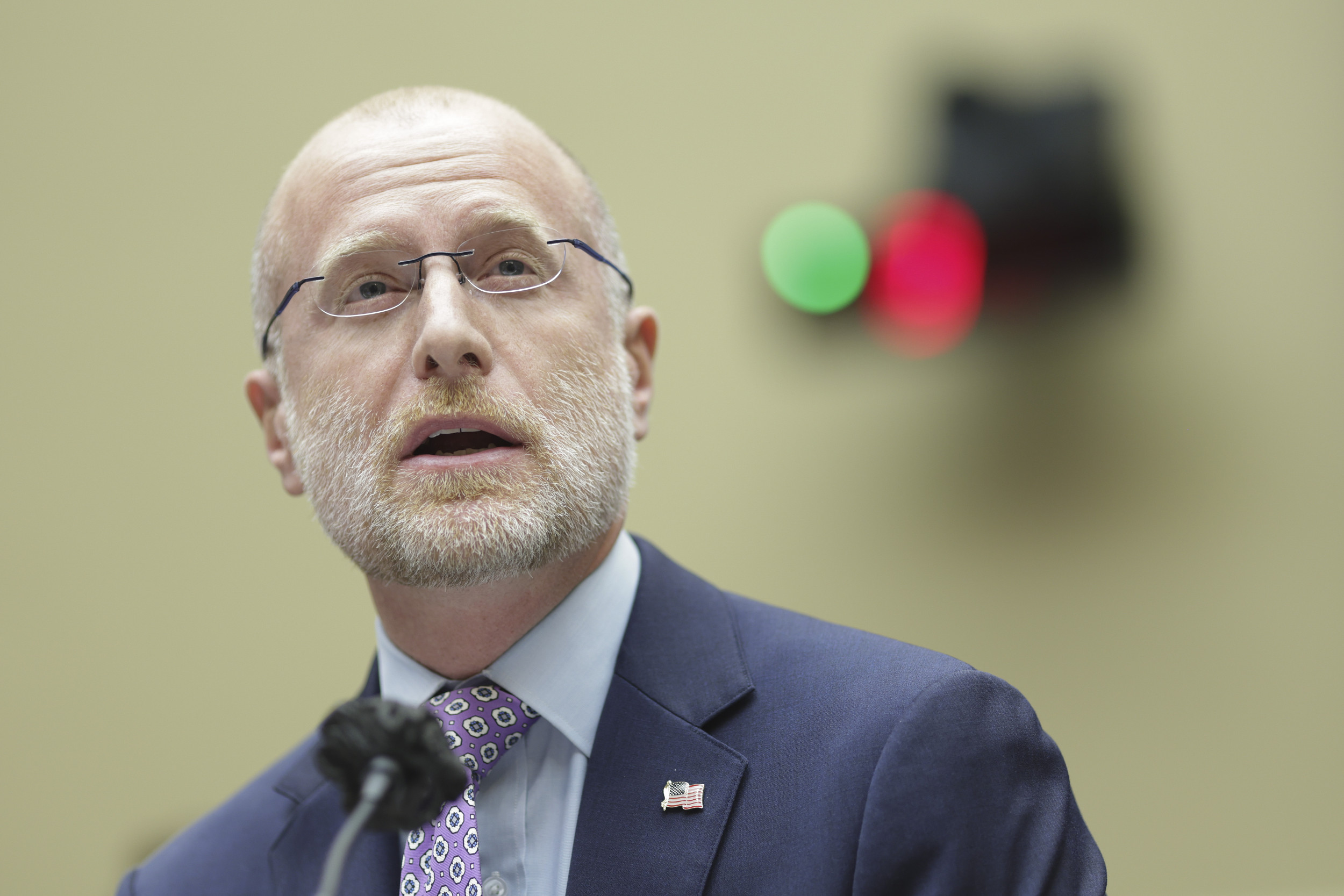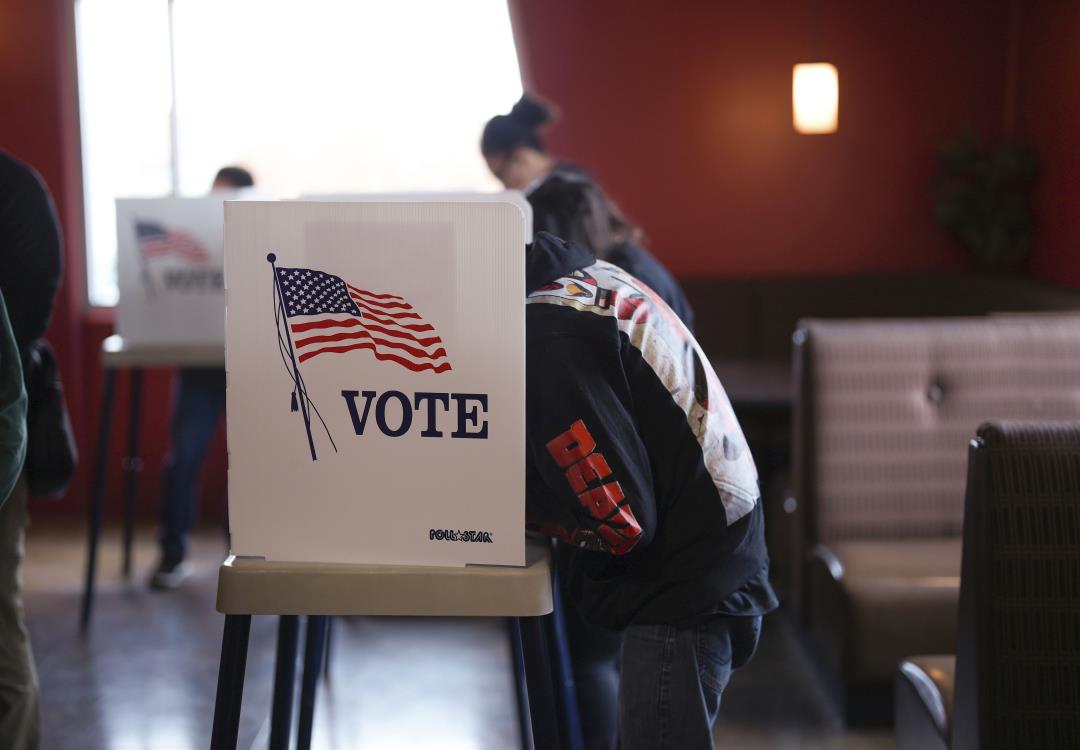Brendan Carr, President-elect Donald Trump’s pick as the next chair of the Federal Communications Commission (FCC), has outlined the areas the agency that regulates telecommunications will focus on next year.
Carr, the current top Republican on the FCC, has already vowed to end the agency’s promotion of diversity, equity, and inclusion (DEI), ensure broadcasters operate in the public interest, and dismantle the “censorship cartel” amid claims of anti-Republican bias from big tech companies such as Google and Apple.
Trump previously nominated Carr as a commissioner to the FCC in 2017. Carr has supported some of the president-elect’s attacks on television networks and news outlets during the 2024 election, including suggesting that NBC could lose its license for having Vice President Kamala Harris appear on Saturday Night Live just ahead of Election Day without giving equal time to Trump.
Liberal advocacy group Free Press Action said Carr will carry out the “personal vendettas” of Trump as FCC chair, as well as those of tech entrepreneur Elon Musk. Carr is a vocal supporter of the billionaire Musk, whom Trump has tapped to run the new Department of Government Efficiency. The FCC is set to rule whether to allow Musk’s Starlink satellites to orbit closer to Earth.
“Commissioner Carr is a warrior for free speech and has fought against the regulatory lawfare that has stifled Americans’ freedoms and held back our economy,” Trump said. “He will end the regulatory onslaught that has been crippling America’s job creators and innovators and ensure that the FCC delivers for rural America.”
Newsweek has contacted the FCC for comment via email.
Kevin Dietsch/Getty Images
In a series of statements and posts on X, formerly Twitter, Carr has outlined some of the targets the FCC will focus on under his leadership.
“Broadcast media have had the privilege of using a scarce and valuable public resource—our airwaves,” Carr posted. “In turn, they are required by law to operate in the public interest. When the transition is complete, the FCC will enforce this public interest obligation.”
Carr said the FCC will no longer consider DEI a key strategy, sharing a picture purporting to show the agency’s recent budget that placed the program as its second goal.
“The FCC’s most recent budget request said that promoting DEI was the agency’s second-highest strategic goal. Starting next year, the FCC will end its promotion of DEI,” Carr said.
DEI, which aims to address inequities among historically marginalized groups in business, schools or government agencies, has been a target of Republican attacks. Critics accuse DEI programs of being racially divisive. Proponents have said “DEI” has been co-opted as a racial slur.
Some GOP lawmakers received bipartisan criticism after suggesting that Harris, who is of Black and Asian heritage, was a “DEI hire” after she was nominated to lead the Democratic Party’s 2024 ticket.
Prior to his nomination as FCC chair, Carr wrote a letter to the CEOs of the four largest tech companies—Apple’s Tim Cook, Meta’s Mark Zuckerberg, Microsoft’s Satya Nadella, and CEO of Alphabet and its subsidiary Google, Sundar Pichai—demanding information about the “unprecedented surge” in censorship.
“Congressional investigations, press reports, and other evidence show that in many cases you did not act alone. Rather, you participated in a censorship cartel that included not only technology and social media companies but also advertising, marketing, and so-called ‘fact-checking’ organizations, as well as the Biden-Harris Administration itself,” Carr wrote.
“This censorship cartel is an affront to Americans’ constitutional freedoms and must be completely dismantled. Americans must be able to reclaim their right to free speech. Indeed, our democracy depends on freedom of expression.”
In a post on X after news of his nomination as FCC chair, Carr added: “We must dismantle the censorship cartel and restore free speech rights for everyday Americans.”
Claims of anti-conservative bias and censoring of Republican voices online have been also been GOP talking point over the years, resulting in congressional hearings.
In September, Trump said he would seek the prosecution of Google if he wins the election over claims the search engine only displayed “bad stories” about him.
Newsweek has contacted Google for comment via email.
Trump has also previously suggested that CNN and NBC should have “their licenses taken away” for not airing his victory speech after the Iowa caucuses in early 2024.
Craig Aaron, co-CEO of the digital advocacy group Free Press Action, criticized Carr’s appointment to chair of the FCC.
“Carr doesn’t care about protecting the public interest; he got this job because he will carry out Trump and Elon Musk’s personal vendettas,” Aaron said in a statement.
“While styling himself as a free-speech champion, Carr refused to stand up when Trump threatened to take away the broadcast licenses of TV stations for daring to fact-check him during the campaign. This alone should be disqualifying.”
Carr wrote on X that he is “humbled and honored” to serve as chairman of the FCC. “Now we get to work,” he added.














